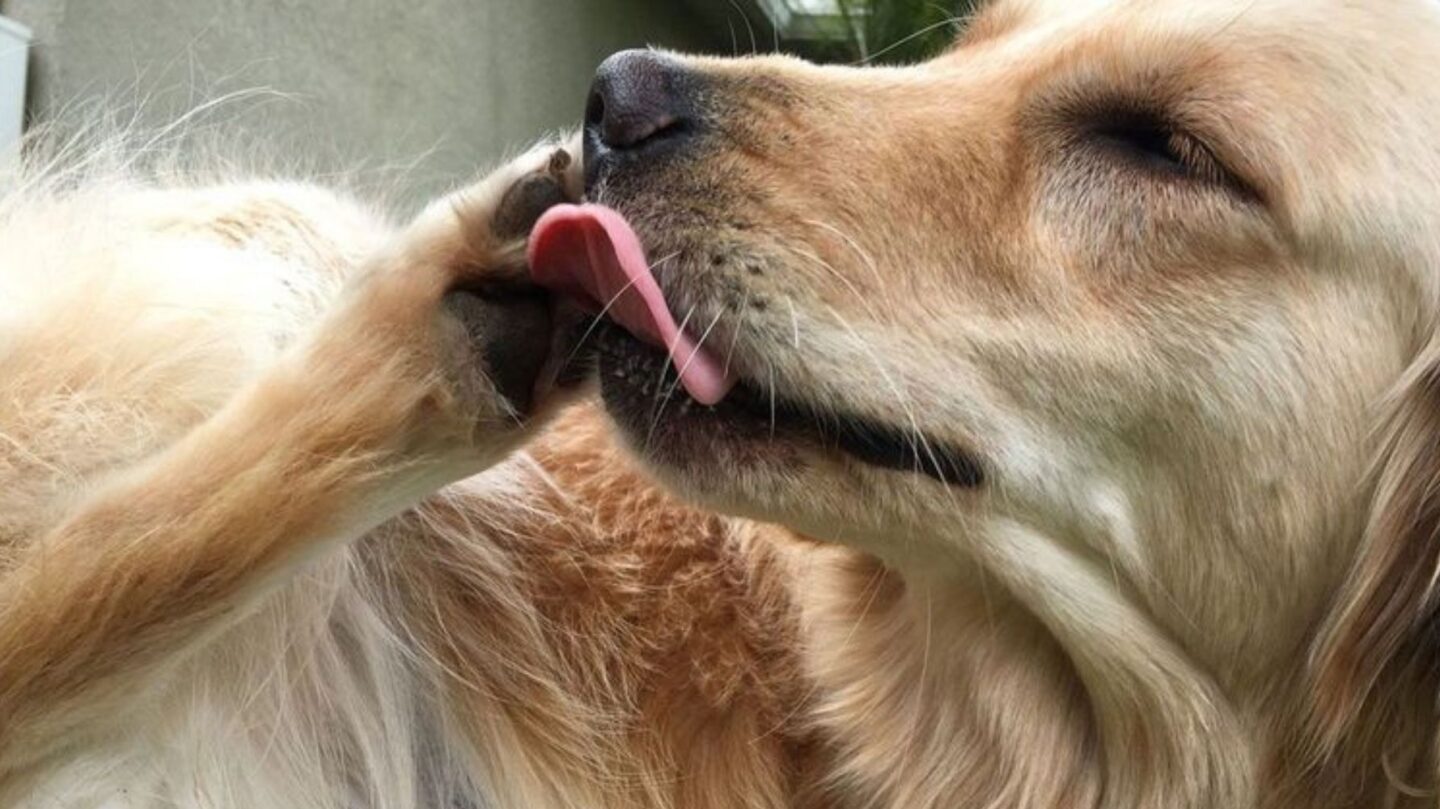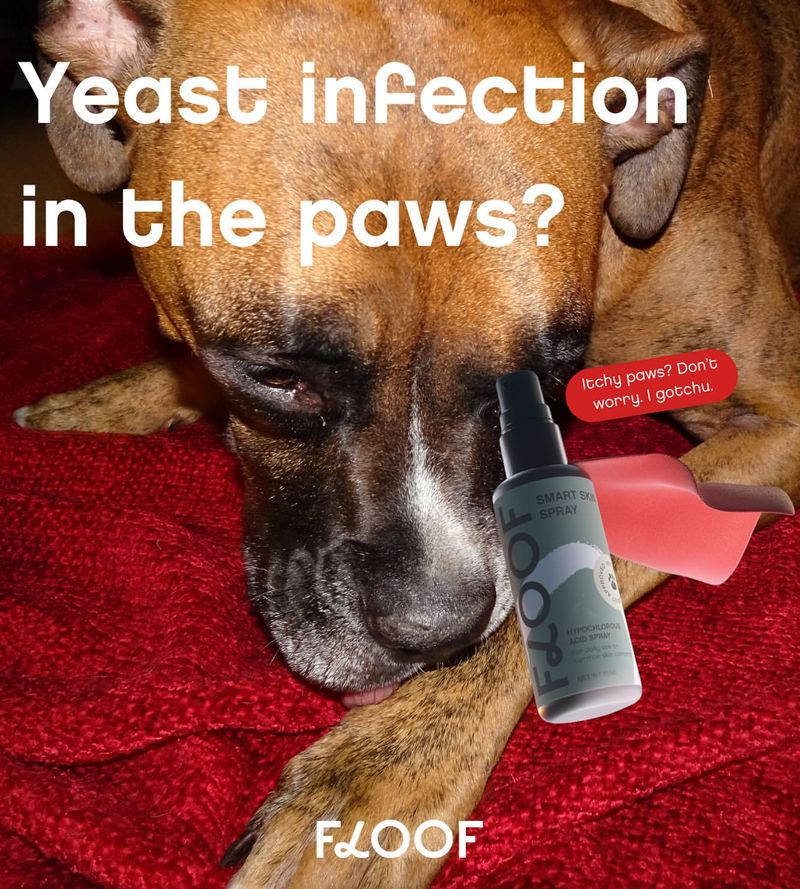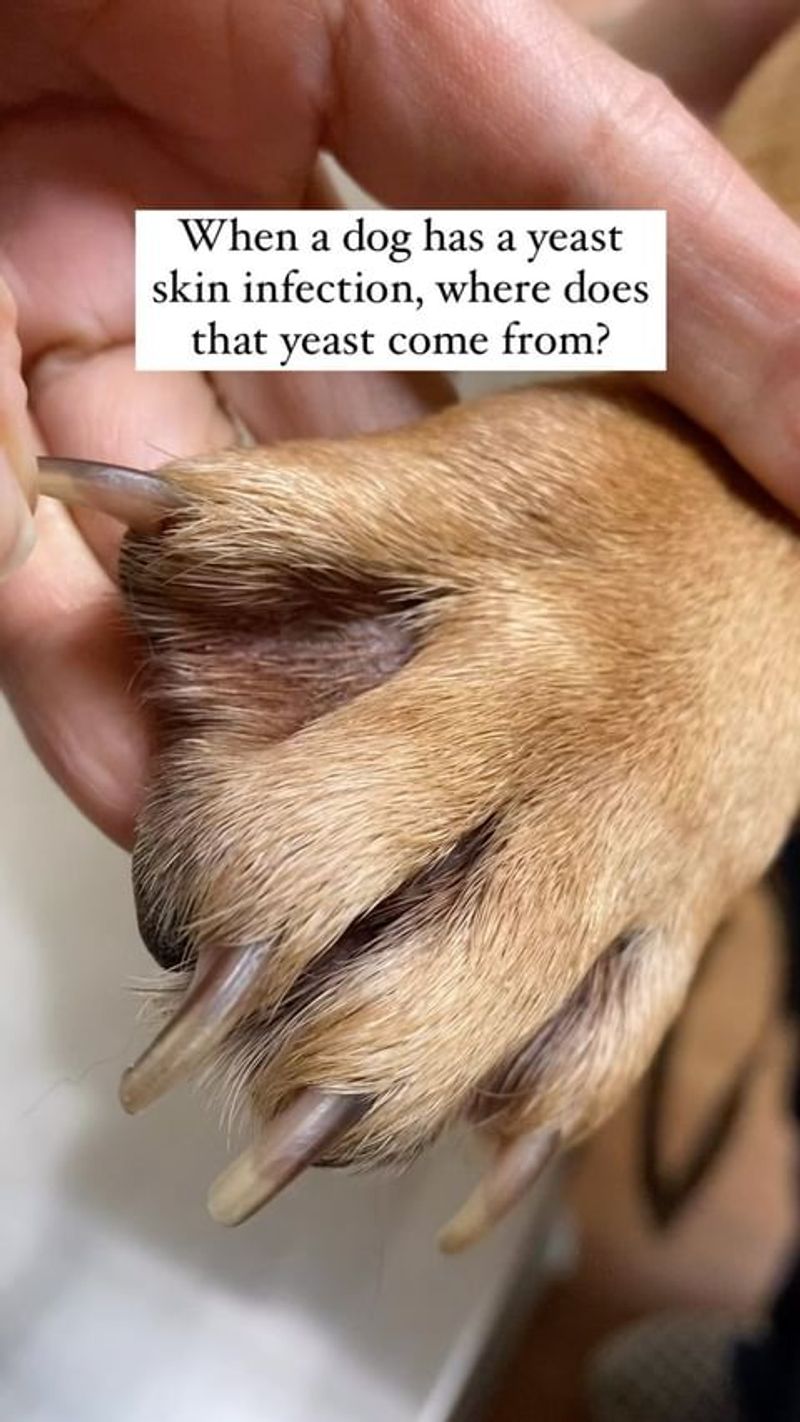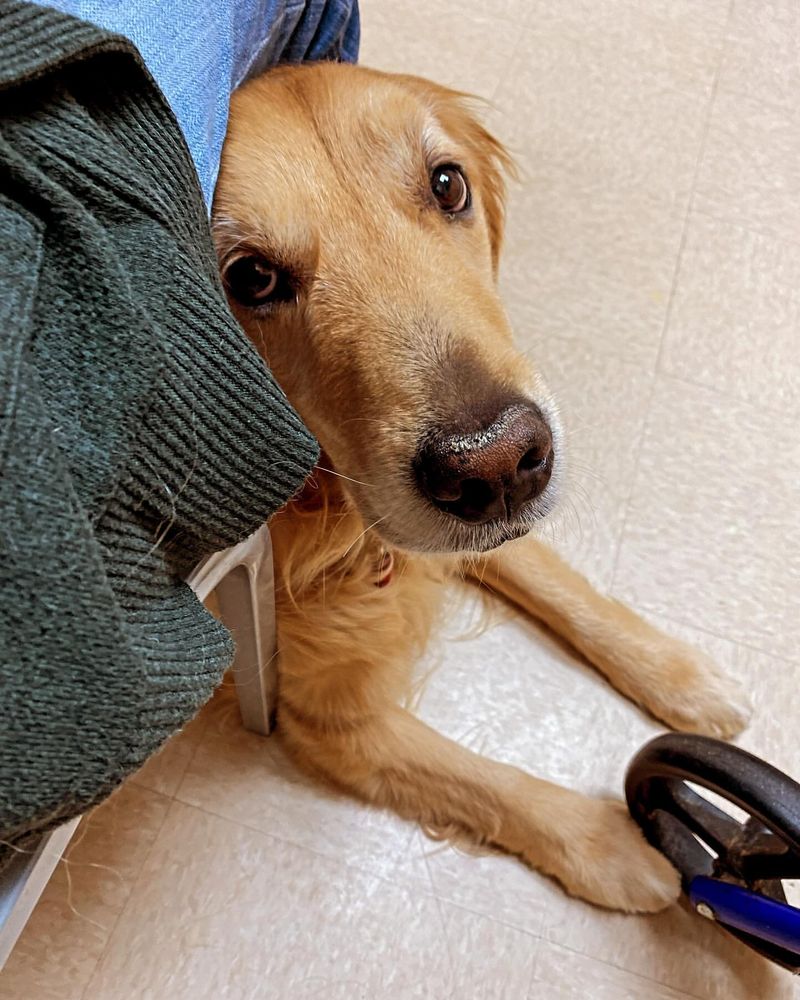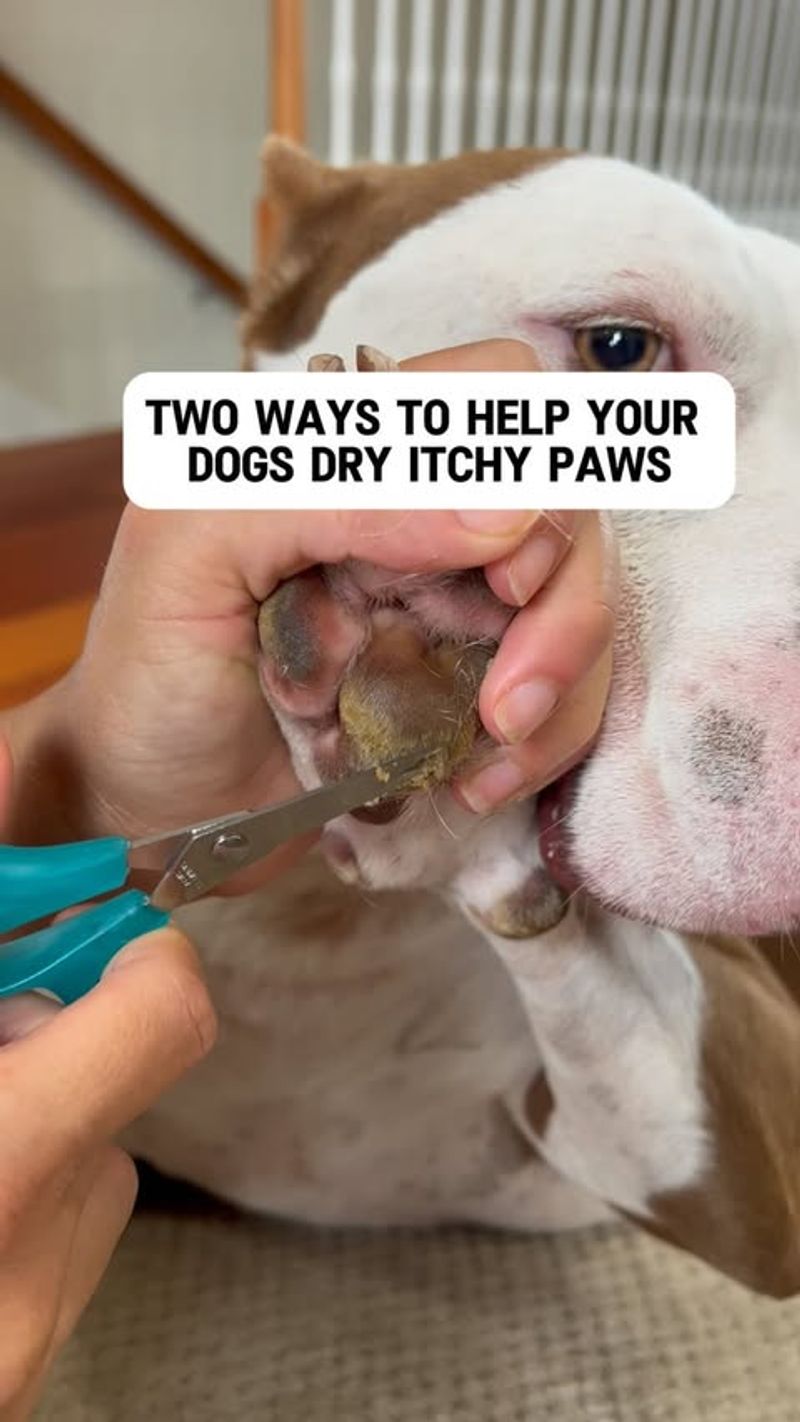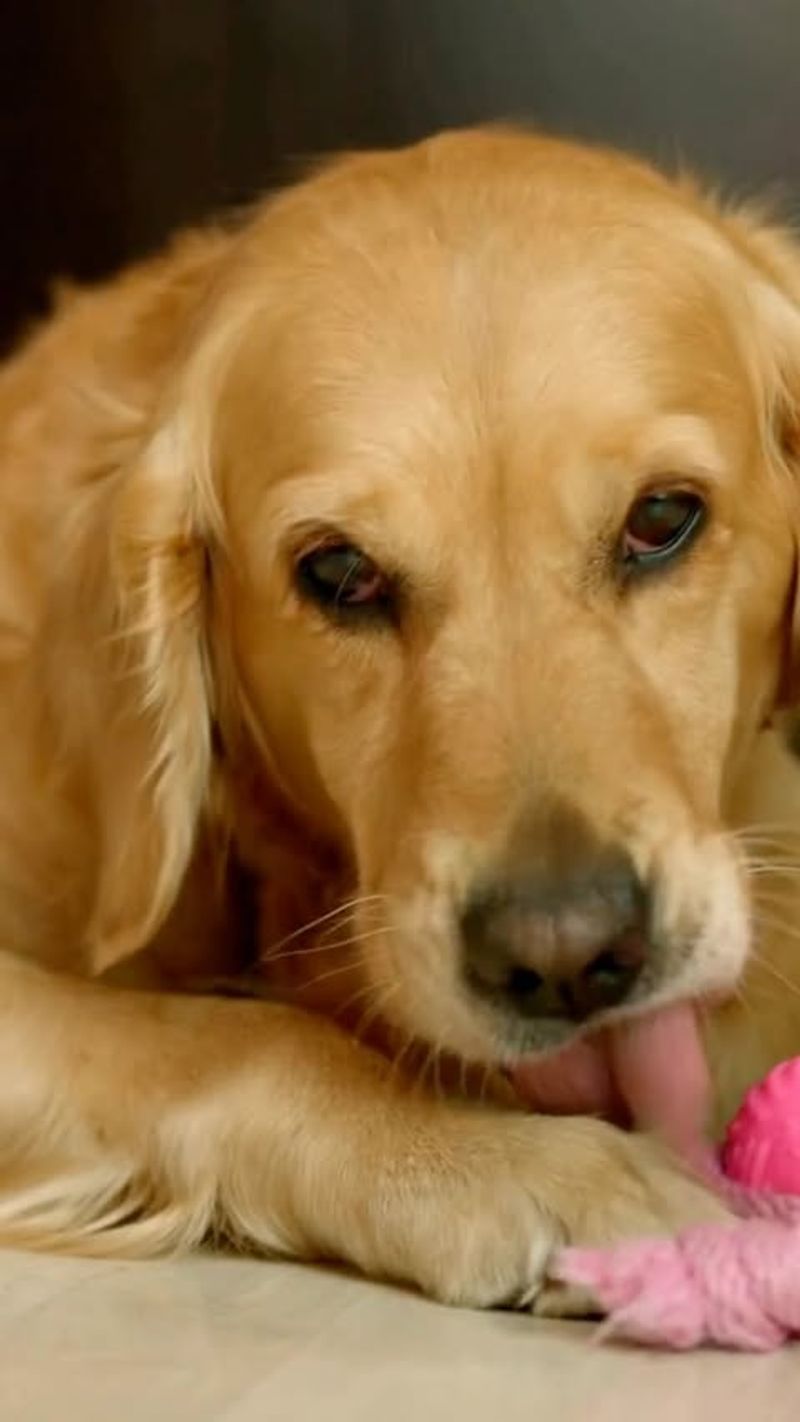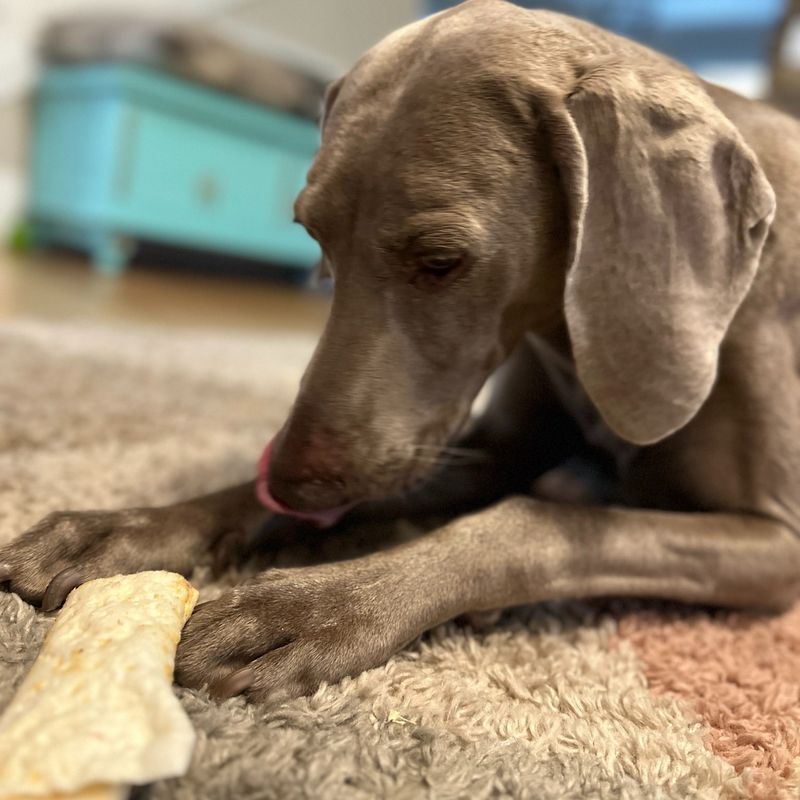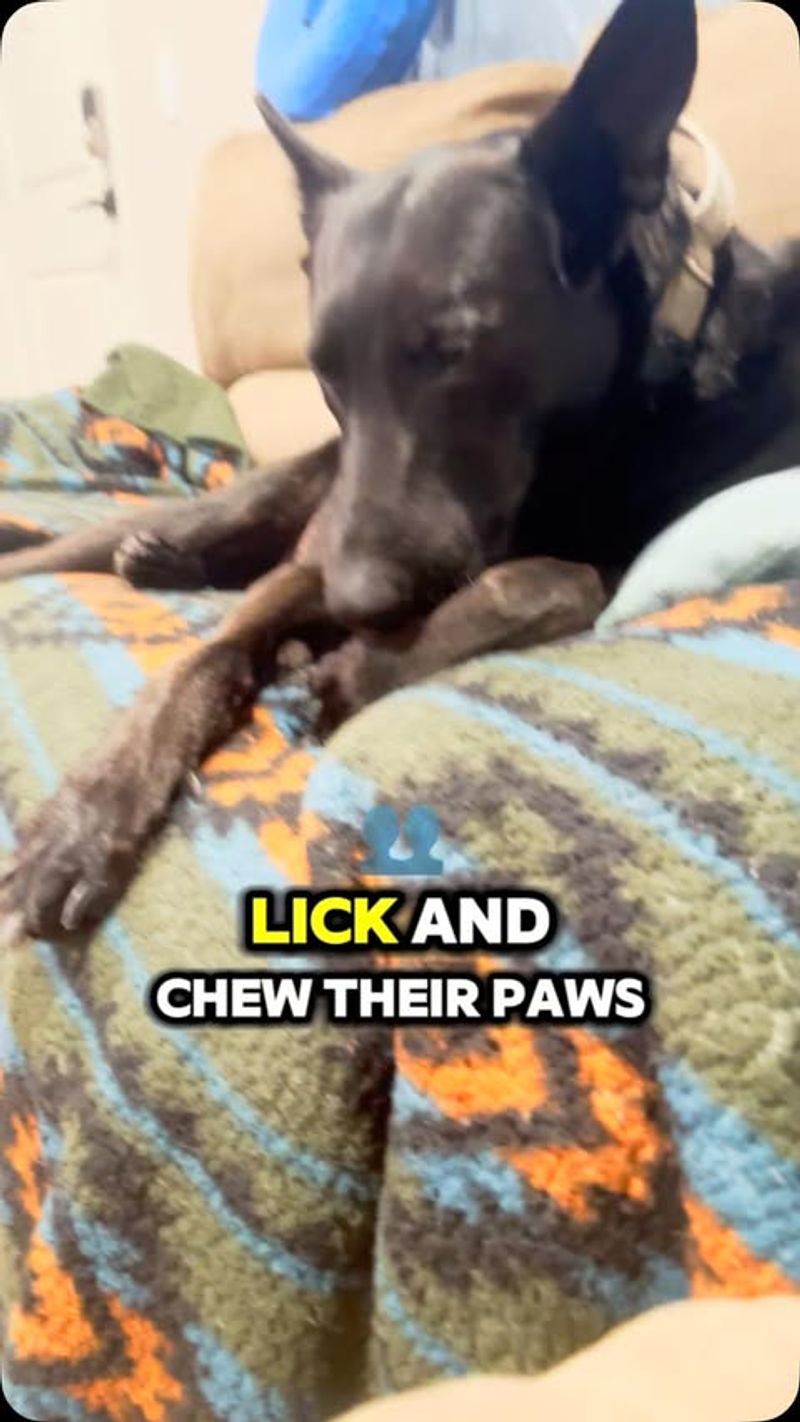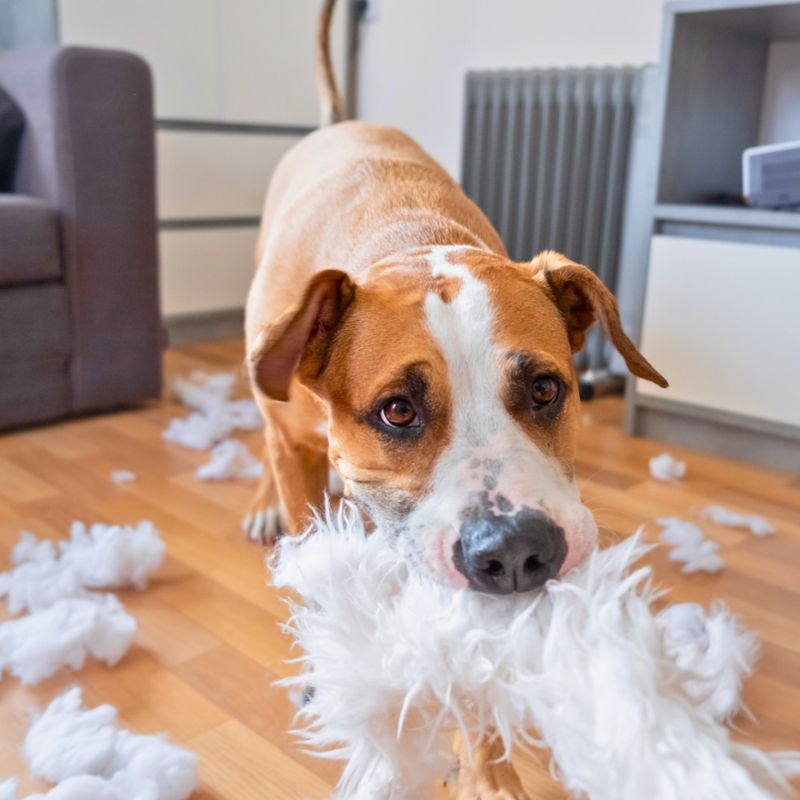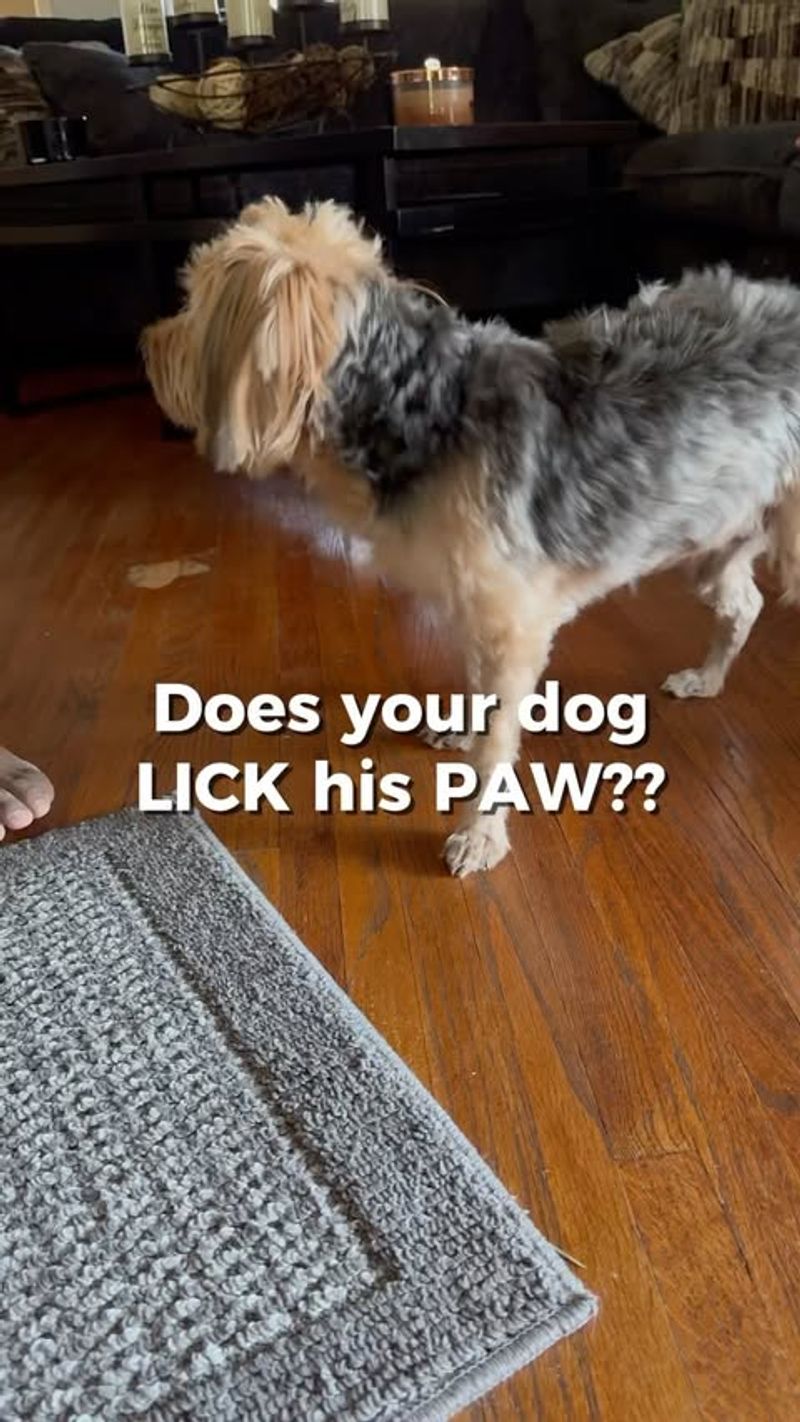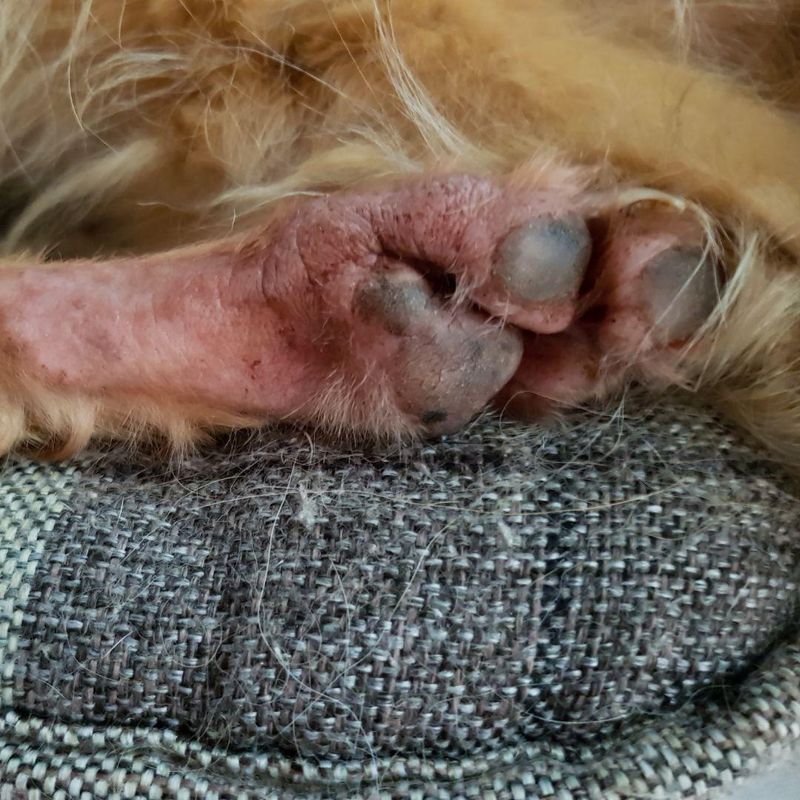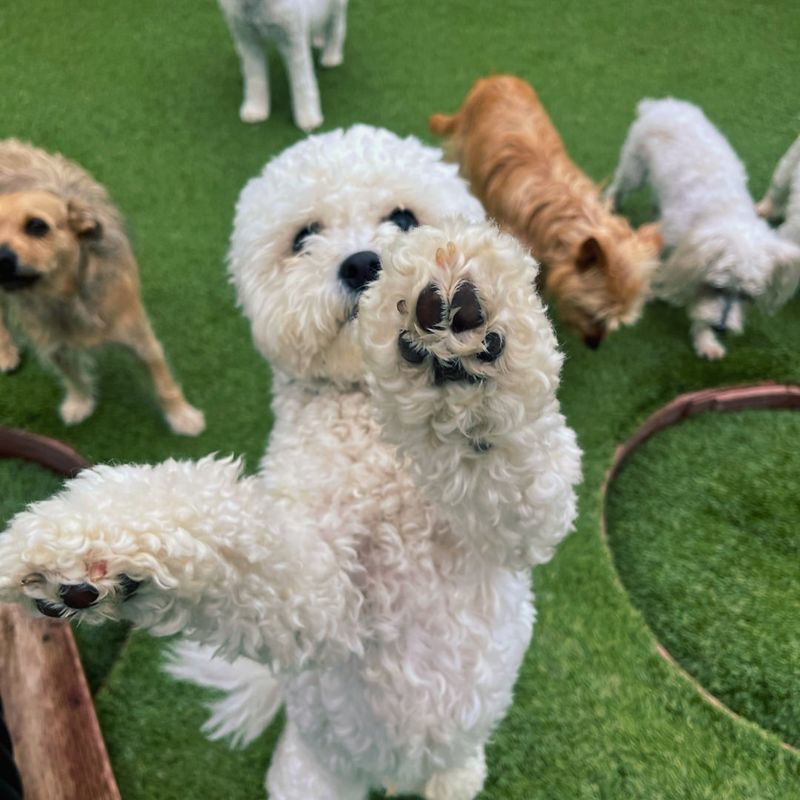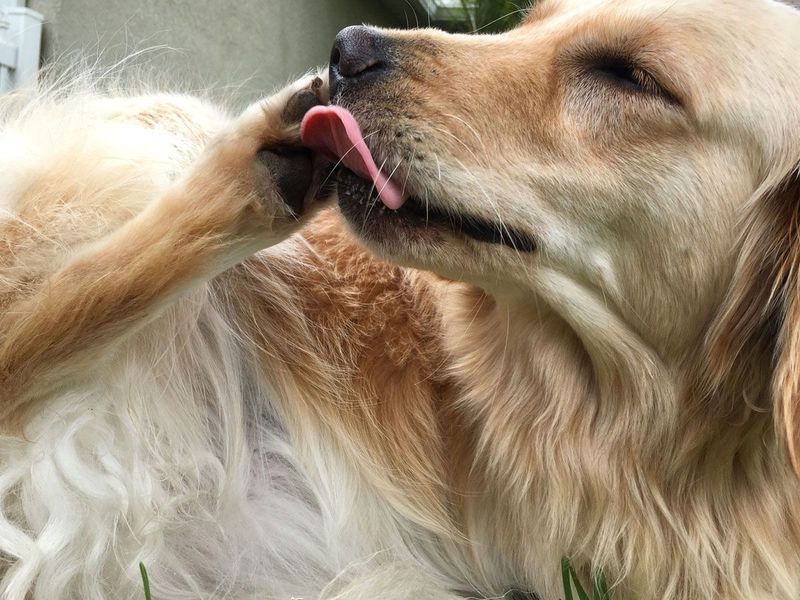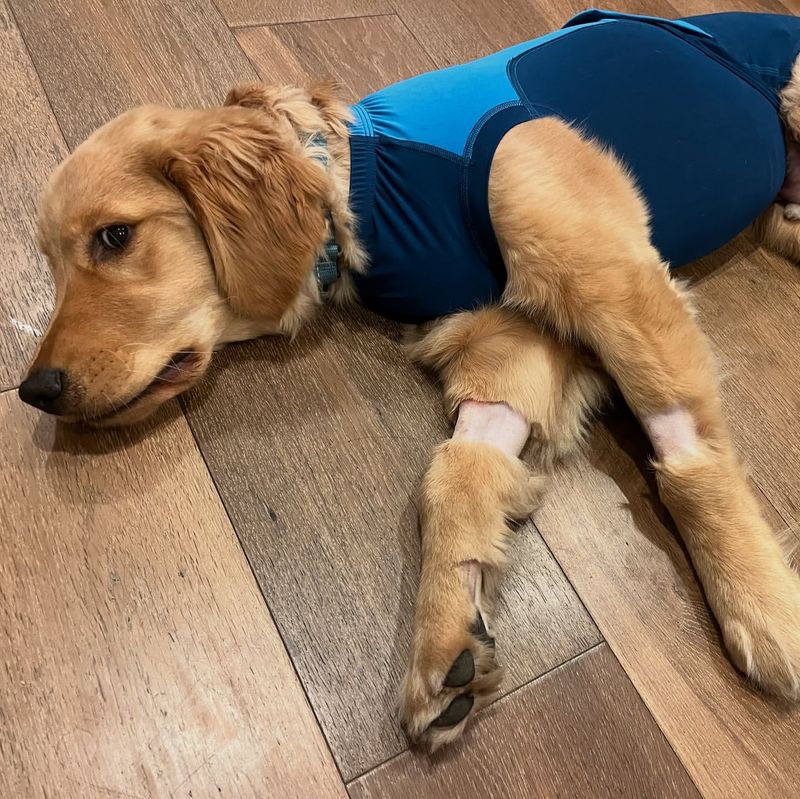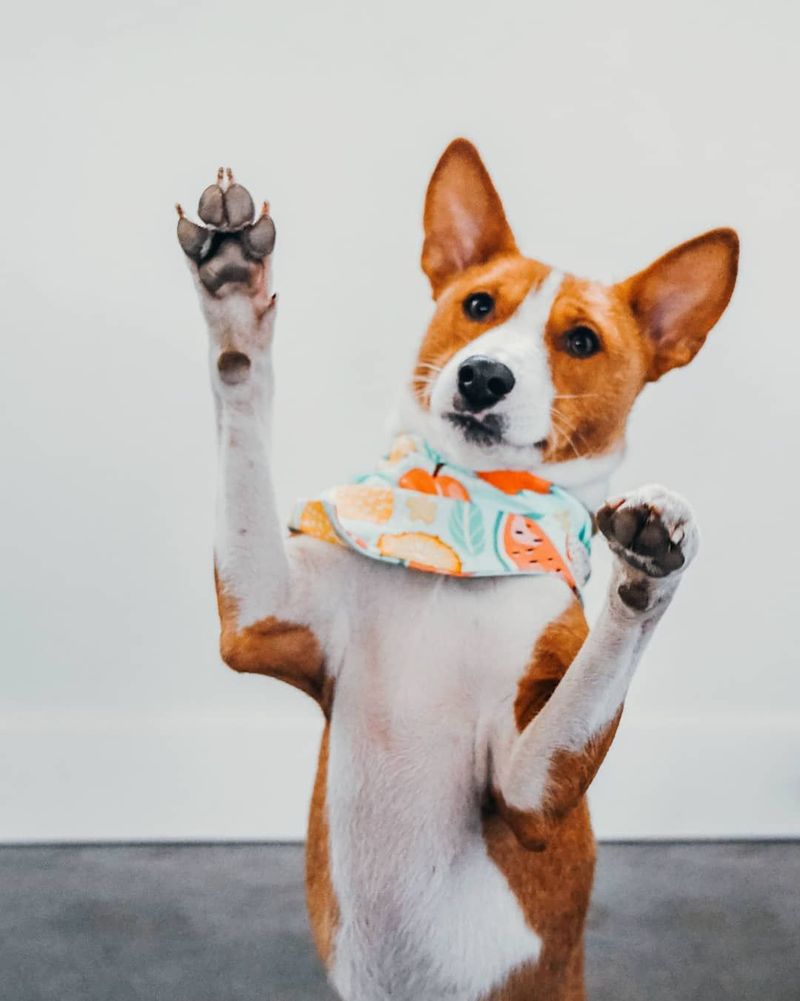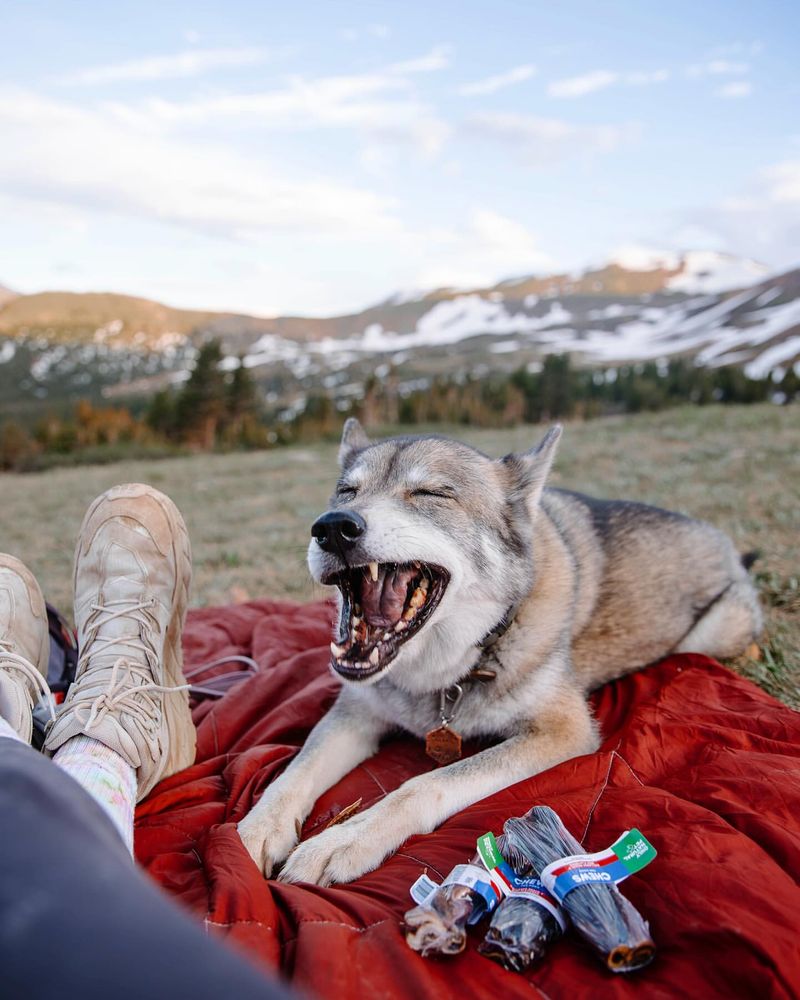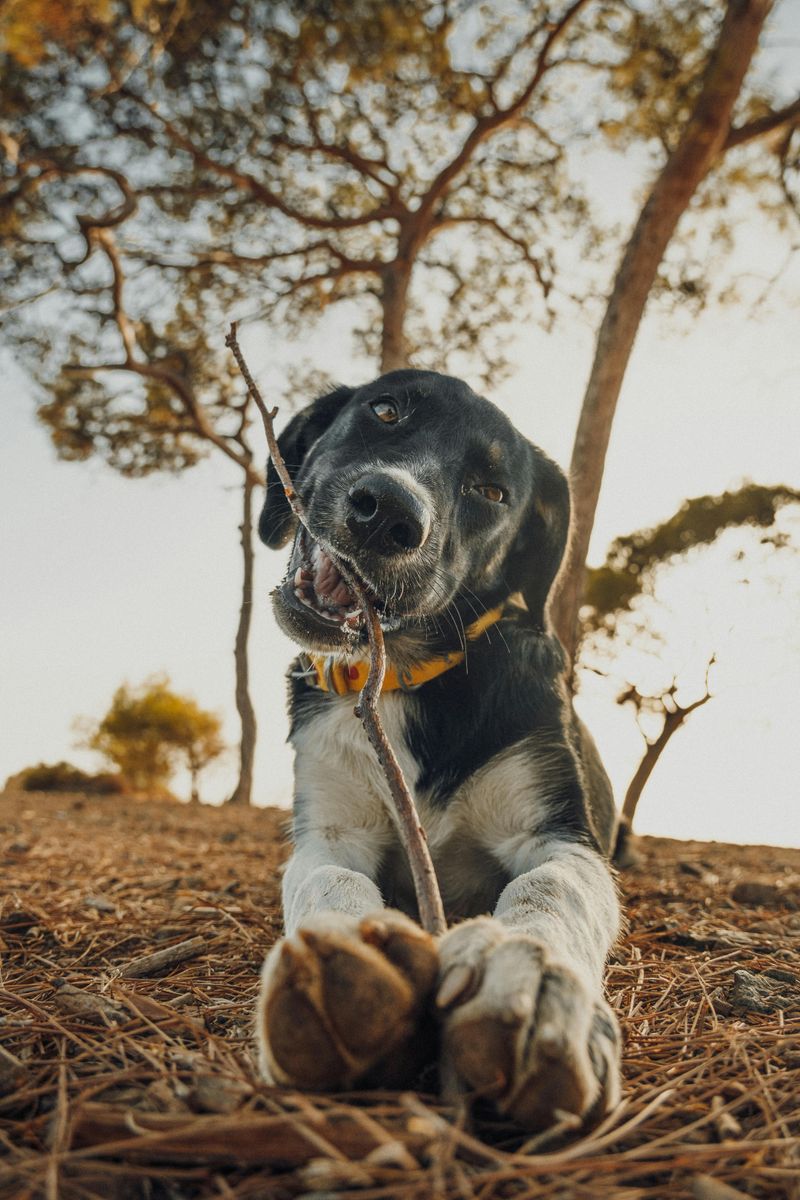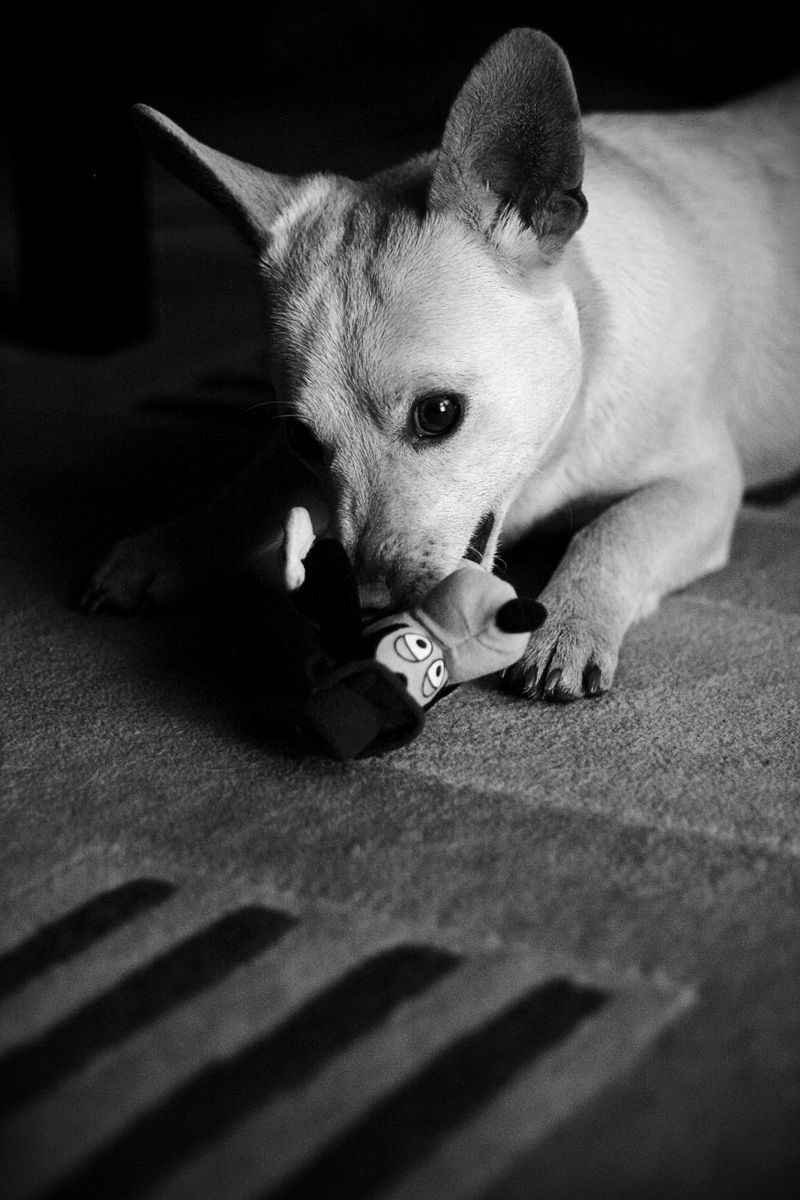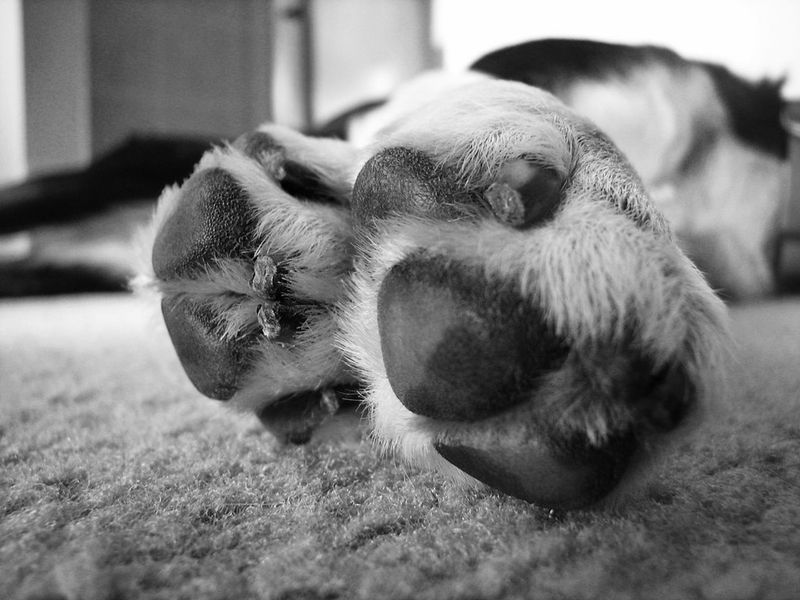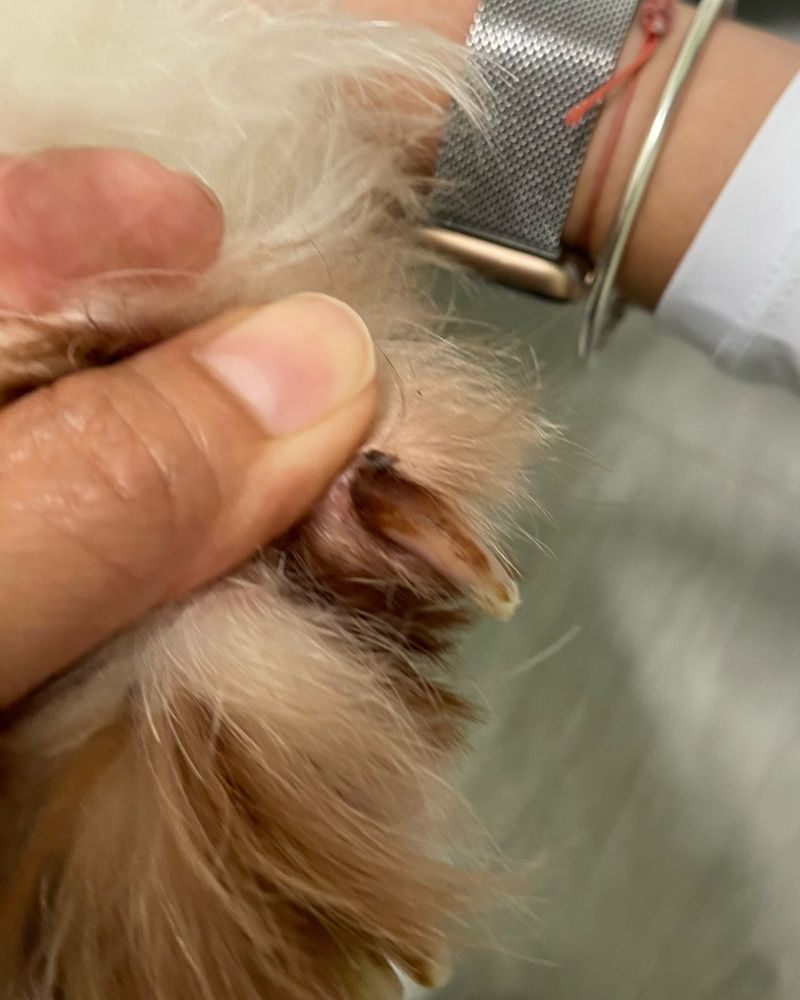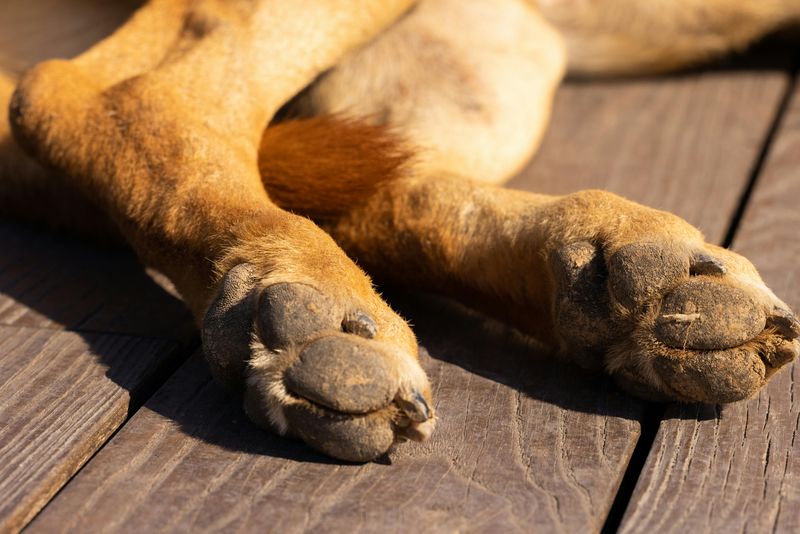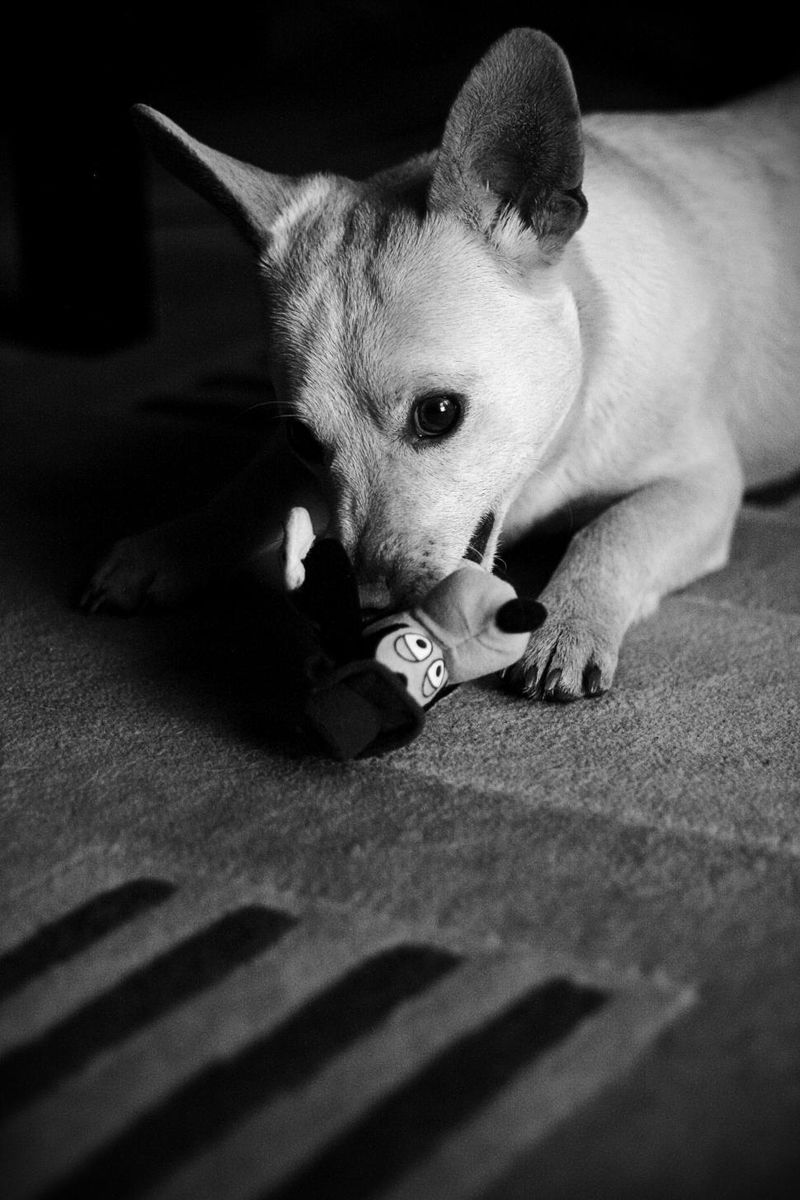Paw chewing is a common behavior observed in dogs, often causing concern for pet owners. Understanding the reasons behind this habit is crucial for ensuring the well-being of your furry friend. We consulted a veterinary dermatologist to explore 22 reasons why dogs might chew their paws and how you can help them.
Allergies
Allergies are a prevalent cause of paw chewing in dogs. Environmental allergens like pollen, dust mites, and mold can trigger itchiness.
Dogs may chew their paws to relieve the discomfort. Food allergies can also play a role. Identifying the allergen is key.
A veterinary dermatologist can conduct tests to pinpoint the cause. Switching to hypoallergenic diets or managing the environment may offer relief. Consulting a vet promptly is advisable if allergies are suspected.
Fungal Infections
Fungal infections thrive in moist environments, making paws susceptible. Yeast infections are particularly common.
Dogs might chew their paws to alleviate the irritation caused by the fungus. Prompt treatment is essential.
A vet can prescribe antifungal medications to tackle the infection. Keeping paws dry and clean helps prevent recurrence. Regular inspections are recommended, especially after walks in damp areas.
Bacterial Infections
Bacterial infections can cause significant discomfort, prompting dogs to chew their paws. These infections often result from cuts or abrasions.
If neglected, they can worsen, leading to severe irritation. Vets typically prescribe antibiotics to treat such infections.
Keeping the paws clean and monitoring any wounds is essential in preventing bacterial infections. Regular vet check-ups can help maintain your dog’s paw health.
Parasites
Parasites like fleas and mites can lead to incessant paw chewing. Their bites cause itching and discomfort.
Dogs may chew or lick their paws excessively to seek relief. It’s crucial to address parasitic infestations swiftly.
Spot-on treatments or oral medications prescribed by a vet can be effective. Regular grooming and flea control measures are vital to keep parasites at bay.
Dry Skin
Dry skin can lead to irritation, causing dogs to chew their paws. Weather changes, particularly during winter, can exacerbate dryness.
Dogs might find relief in chewing or licking affected areas. Moisturizing shampoos or topical treatments may help.
Ensuring proper hydration and using humidifiers during dry seasons can also be beneficial. Consulting a vet for a tailored skincare routine is recommended.
Anxiety or Stress
Anxiety or stress can manifest in dogs through paw chewing. Changes in routine or environment might trigger this behavior.
Dogs may chew their paws as a coping mechanism. It’s important to identify stressors and reduce them.
Engaging activities and positive reinforcement can help alleviate anxiety. Consulting a veterinarian for behavioral advice can also be beneficial.
Boredom
Boredom can lead dogs to engage in paw chewing. Lack of mental or physical stimulation often prompts this habit.
Providing toys or interactive games can divert their attention. Regular walks or playtime are essential.
Ensuring a stimulating environment helps keep boredom at bay. If the behavior persists, professional advice from a veterinarian may be necessary.
Pain or Injury
Pain or injury to the paw can lead to chewing as a response. Sprains, cuts, or even a thorn can be culprits.
Inspecting the paw for visible injuries is crucial. Dogs may chew to alleviate pain.
Immediate veterinary attention is recommended if injury is suspected. Treatment may include bandaging or pain relief medications.
Habitual Behavior
Habitual behavior can result from prolonged paw chewing. Over time, dogs may develop this as a routine.
It’s essential to identify underlying causes initially, such as allergies or boredom. Breaking the habit requires consistency.
Redirection with toys or treats can be effective. Consulting a veterinary behaviorist might be necessary for persistent cases.
Grooming Issues
Improper grooming can lead to paw discomfort, causing dogs to chew. Overgrown fur or matted hair can irritate.
Regular grooming helps maintain paw health. Trimming fur between paw pads is crucial.
Professional grooming can prevent issues related to fur. Monitoring the dog’s paws regularly ensures any grooming concerns are addressed promptly.
Secondary Compulsion
Secondary compulsions can develop from prolonged paw chewing due to initial issues like allergies. With time, dogs might chew out of habit.
Addressing the root cause is vital. Behavioral interventions can help break the cycle.
Consistency in managing the behavior and veterinary guidance are key to resolution. Monitoring and adjusting the dog’s environment can support recovery.
Ticks
Ticks are notorious for causing irritation, leading to paw chewing. These parasites latch onto the skin, causing discomfort.
Regular tick checks, especially after outdoor activities, are crucial. Removing ticks promptly reduces irritation.
Tick prevention treatments can safeguard your dog. Consulting a veterinarian for effective control measures is recommended.
Chemical Irritants
Chemical irritants from surfaces like lawns or pavements can cause paw discomfort. Dogs may chew to alleviate the irritation.
Rinsing paws after walks can help remove irritants. Monitoring for signs of discomfort is essential.
If chemical exposure is suspected, consulting a vet is advisable. Protective footwear for dogs might also be considered for sensitive paws.
Foreign Objects
Foreign objects lodged in the paw can lead to chewing. Thorns, splinters, or even small stones are common culprits.
Inspecting the paws after outdoor activities helps identify and remove such objects. Prompt removal reduces discomfort.
If a foreign object is deeply embedded, veterinary assistance may be required. Regular paw checks ensure your dog’s comfort.
Hormonal Imbalances
Hormonal imbalances can result in skin changes, leading to paw chewing. Conditions like hypothyroidism are known to cause this.
A veterinary examination can diagnose hormonal issues. Treatments often involve medication to balance hormones.
Regular monitoring and follow-up with the vet ensure effective management. Addressing hormonal imbalances improves overall health.
Sensory Exploration
Dogs often explore their world through taste and touch. This sensory exploration can include paw chewing.
Puppies are especially prone to this behavior. It’s usually harmless but monitoring is wise.
Providing chew toys can offer an alternative. Redirecting attention discourages the habit. If the behavior persists, seeking professional advice is beneficial.
Skin Conditions
Skin conditions like dermatitis can cause paw irritation, prompting chewing. Allergies or infections may trigger such conditions.
Veterinary diagnosis is crucial for appropriate treatment. Topical or oral medications might be prescribed.
Regular skin care and grooming help in managing skin issues. Keeping the dog’s living environment clean reduces potential triggers.
Nutritional Deficiencies
Nutritional deficiencies can manifest as skin issues, leading to paw chewing. Lack of essential nutrients affects skin health.
A balanced diet is vital for overall well-being. Consulting a vet for dietary guidance can rectify deficiencies.
Supplements might be recommended for specific needs. Ensuring a nutritious diet supports healthy skin and reduces chewing behavior.
Joint Pain
Joint pain, especially in older dogs, can result in paw chewing. Conditions like arthritis are common culprits.
Veterinary assessment can determine the cause of discomfort. Pain relief medications or supplements may be prescribed.
Providing comfortable bedding and maintaining a healthy weight are crucial. Regular exercise and joint care improve quality of life.
Nail Issues
Nail issues, such as overgrowth or ingrown nails, can cause paw discomfort. Dogs might chew at their paws to relieve the pain.
Regular nail trimming is essential to prevent such issues. Professional grooming can help maintain nail health.
Monitoring for signs of discomfort ensures prompt attention. Veterinary guidance is valuable if nail problems persist.
Genetic Predisposition
Some breeds are genetically predisposed to paw chewing. It’s crucial to recognize this trait in certain dogs.
While the behavior might not always indicate an issue, monitoring is important. Understanding breed-specific tendencies aids in management.
Providing appropriate toys and stimulation can help. Consulting a vet for breed-specific advice supports overall well-being.
Contact Dermatitis
Contact dermatitis can cause paw chewing due to irritation from surfaces like freshly cleaned floors.
Identifying and avoiding irritants is key. Rinsing paws after exposure helps reduce irritation.
If symptoms persist, veterinary consultation is recommended. Topical treatments might be prescribed to soothe the skin.
